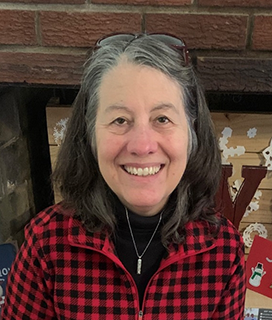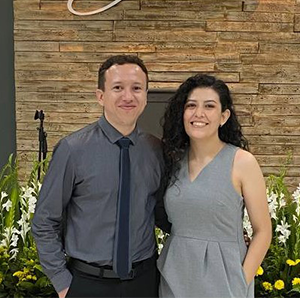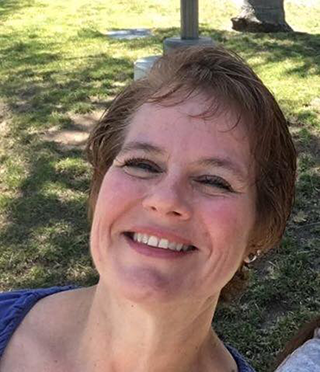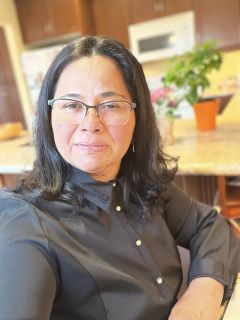-
Jesus Prepared the Disciples and Gave Them the Holy Spirit
 Written by Beliza Patrícia, Brazil Coordinator for Iron Rose Sister Ministries
Written by Beliza Patrícia, Brazil Coordinator for Iron Rose Sister MinistriesWhen we think of the 12 apostles and the time in which they walked with Jesus on this earth, it is easy to imagine them as Jesus’ helpers. But when a master finishes a job, the helper doesn’t have any more tasks. In reality, the apostles were more like interns. In other words, throughout the time that Jesus was with the apostles, He was preparing them so that when the moment came that He would no longer be with them, they would be prepared to take on the role of presenting the gospel to the world.
Jesus came to the earth to accomplish a mission, and for the three years of His ministry He prepared the apostles for the mission they would have after His departure. The Teacher chose humble men to proclaim His Kingdom and taught them about eternal life, forgiveness of sins, and the love of the Father. Day after day the apostles walked by His side: talking with Him, asking questions, listening to parables, seeing the manifestation of His power healing the sick, expelling demons, performing miracles, and witnessing His disapproval of the behavior of the teachers of the law. By association and personal contact, Christ prepared the apostles for His service.
In recounting the events of Jesus’ last days on earth, John wrote in his gospel:
It was just before the Passover Festival. Jesus knew that the hour had come for him to leave this world and go to the Father. Having loved his own who were in the world, he loved them to the end. (John 13:1 NIV)
Throughout His time on earth, Jesus showed the apostles that He loved them. And it was with love that He prepared and equipped those who became the leaders of His church. With love he sent them to preach the gospel to all of creation.
Knowing that His ministry on earth was coming to an end and that He would no longer be with those who walked with Him on His journey, Jesus made recommendations and promises to the apostles (John 14, 15, and 16). Like a good teacher, He encouraged them and prepared them for the future. He alerted them about the persecution they would suffer for obeying the Savior.
One of the promises that Jesus made was to send them the Counselor, the Holy Spirit, who would comfort them and testify of Jesus. The Holy Spirit would empower them to succeed along the way. The gospel was not proclaimed by human strength or wisdom, but by the power of God.
And I will ask the Father, and he will give you another advocate to help you and be with you forever— the Spirit of truth. The world cannot accept him, because it neither sees him nor knows him. But you know him, for he lives with you and will be in you. (John 14:16,17)
After Jesus’ death, the apostles were to be Christ’s witnesses and to proclaim to the world what they had seen and heard from Him. They were to be God’s collaborators in the salvation of mankind. It was to fulfill this role that these men, so different from each other, were chosen and prepared. This may seem like a grandiose mission for such simple men, but those who heard them marveled… because they didn’t speak about themselves, but were presenting the way to the Savior. The apostles’ teaching declared that everything they did came from the power of Christ.
The apostles were prepared for the mission through their relationship with Jesus, the Son of God, and then continued their mission with the Comforter, the Holy Spirit of God, who taught them what was needed, and who reminded them of the teachings of Jesus. God was in relationship with the apostles all along.
God also wants to be in relationship with us. With love He wants to prepare us for our mission, and when we are baptized in the name of Jesus, we receive the Holy Spirit that comforts, orients, and intercedes for us. “Come near to God and he will come near to you!” (James 4:8)
#IronRoseSister #teachthroughrelationships #learnthroughrelationships #intentionalteaching #HolySpirit #preparation #Jesuspreparedthedisciples #Godwaswiththedisciples #blog #guestwriter
-
Jesus' Relationship with God
Written by Ann Thiede, volunteer with Iron Rose Sister Ministries in Arkansas

Every day that Jesus lived on earth, for about thirty-three years, He chose not to sin. He could have, this One who was fully man and fully God. As the writer of Hebrews says,
“For we do not have a high priest who is unable to empathize with our weaknesses, but we have One who has been tempted in every way, just as we are—yet He did not sin” (Heb. 4:15)
We all know the powerful pull of the flesh to be drawn into sin, whether in our minds, words, or actions. So how did Jesus do it, day after day? The following scriptures hold a key. Paul speaks of Jesus in Colossians: “He is before all things, and in Him all things hold together” (Col. 1:17)
And then the Father asked His Son, in our desperate need, to enter this world as Philippians 2:6-8 beautifully states:
“Who, being in very nature God, did not consider equality with God something to be used to His own advantage; rather, He made Himself nothing by taking the very nature of a servant, being made in human likeness. And being found in appearance as a man, He humbled Himself by becoming obedient to death— even death on a cross!”
There is no doubt Jesus’ relationship with God in the spiritual realm built a strong foundation of love and trust that was essential when He became man. May you find some treasures that not only helped Jesus but may also help you draw closer to Father God and farther from the pull of sin.
We hear the first words from Jesus as a twelve-year-old when His parents found Him in Jerusalem’s Temple, astonishing the rabbis with His questions, answers and understanding. He said,
“Why did you seek Me? Did you not know that I mustbe about My Father’s business?” (Luke 2:49)
Early in His ministry around the age of thirty, Jesus called others to follow Him, that they might be with Him, learn from Him, and see Him in action. Was this God’s business, calling followers? A resounding yes! Jesus was with God when He called Abraham, Isaac, Jacob (Israel), Moses and prophets such as Isaiah, to name a few. All received God’s call in different ways but were obedient, going where He called them to go even if they weren’t sure of the way, or the way was hard and full of challenges. A beautiful thing happened when Jesus said to Philip, “Follow Me” (John 1:43, NIV). Philip found Nathaniel in the same manner that Andrew had found his brother, Simon Peter, and brought him to Jesus. They had to share with someone; it was impossible to keep Jesus to themselves.
For Jesus, being about the Father’s business involved complete dependency on God, going where the Father wanted Him to go, doing what the Father wanted Him to do with a submissive heart. I love what He says in John 5:19-20a,
“Very truly I tell you, the Son can do nothing by Himself; He can do only what He sees His Father doing, because whatever the Father does the Son also does. For the Father loves the Son and shows Him all He does.”
Jesus and God had an amazing love relationship before time began; the relationship needed nurturing when Jesus walked this earth, going about His Father’s business: opening hearts of men and women through His teachings, calling others to follow Him who in turn called others to follow Jesus, and praying often to His Father with humility and submission. His ultimate obedience? The cross. His reward? Resurrection and a glorious reunion with God!
How can you nurture your relationship with God and be about His business?
-
Jesus’ pattern of prayer for Peter and for us, Luke 22:31
Written by Jocelynn Goff, volunteer with Iron Rose Sister Ministries in Arkansas, and mother of Michelle J. Goff

As a mom, there are scriptures that I can quote quite easily. One of those is our key verse for this blog, Luke 22:31-32. “Simon, Simon, satan has asked to sift you as wheat. But I have prayed for you, Simon that your faith may not fail. And when you return strengthen your brothers.”
Three others are:
“Being confident of this that He who began a good work in you will bring it to completion until the day of Christ Jesus.” (Phil. 1:6)
“The earth is the Lord’s and everything in it. For He founded it upon the seas and established it upon the waters.”(Ps. 24:1-2)
“so is My Word that goes out from My Mouth; It will not return to Me empty, but will accomplish what I desire and achieve the purpose for which I sent it.”(Is. 55:11a)
You may ask why these scriptures in particular? During various seasons of their lives, these scriptures were my lifeline to the throne of our Father on behalf of my children.
I learned the pattern from Jesus in John 17 as He prayed for Himself, His disciples, and all believers. Jesus was showing how to appeal to His Father what was on His Heart and what was important. His prayer in John 17:3 was for them to know God and Jesus, “that they may know You, the only true God, and Jesus Christ, who You have sent.”In verse 11b, the prayer is for protection, “Holy Father, protect them by the power of Your Name.”In verse 21, a prayer for unity, “that all of them may be one, Father just as You are in Me and I am in You.”
I have felt a desperation at times to know how to guide, correct, encourage, or warn my children. Often, I felt my words were communicated in a way that wasn’t heard with the heart and spirit that I intended it, or I feared I would communicate too harshly, abruptly, or angrily, and mess the whole thing up. Afterwards, I would apologize and then fall on my knees and beg our Father to bring about His Glory in spite of what mistakes I’d made. I’d cry out to Him and remind Him that He is good at that, like we see in scripture over and over again—such as in the stories of Abraham, Jacob, Rahab, Naomi, the Israelite people, Peter, and Paul. All of scripture is full of imperfect people for whom God turned their actions into good and for His Glory.
After my appeal to God’s goodness, then my prayers are intercessory prayers of claiming scripture over the situation and over my child. Over the next days, weeks, or years, until there was an answer to my prayers, I’d repeat the scripture to myself every time I’d feel fear. It calmed my anxious spirit and kept my prayers before the One who had the power to change the situation or the child, or show me where I needed to change.
Specifically, in Luke 22:31, Jesus is warning Peter that satan is going to test him. However, there is a blessing as Jesus says in verse 32, “But I haveprayed for you, Simon that your faith may not fail.” Wow! Jesus prayed for Peter!
This is a specific mention of Peter by name brought before our Father by Jesus Himself. Then, there is also a promise in this verse. The promise is when Jesus says, “And when you have returned...” This says to me that even though there is a failed test, there is a return. We know that Peter was tested and failed the test when he denied Jesus three times. We know this from reading further in Luke 22:54-62. In verses 61 and 62, “The Lord turned and looked straight at Peter. Then Peter remembered the word the Lord had spoken to him: ‘Before the rooster crows today, you will disown Me Three times.’ And he went outside and wept bitterly.” This was the beginning of Peter making a choice to return or not.
However, Jesus’ specific prayer mentions “when you return.” Oh, this is such a promise and why I claimed this scripture at a particular season of life for my child. Every time I felt fear, I would pray this scripture. Over time, there were other occasions and seasons of life when other scriptures were prayed. Along the way, God has given me blessings of hearing these scriptures in a sermon, a Facebook message from an old friend who just had to share that scripture with me, a song on the radio, or a devotional that focused on that exact verse. These messages of hope from my LORD were divine touches from Him, assuring me He is hearing my prayers on behalf of my child.
I encourage, no, I urge you to claim scripture in prayer for any person or situation in your life. It can bring hope to your soul and refresh your spirit as you wait for that person to come back or situation to change.
-
Joshua Learned from Moses
 Written by Nilaurys García, volunteer with Iron Rose Sister Ministries in Canada
Written by Nilaurys García, volunteer with Iron Rose Sister Ministries in CanadaWhen we think of Joshua and Moses, probably the first thing that comes to mind is that because Moses could not enter the promised land, Joshua was chosen by God to lead the people as it says in Deuteronomy 31:3 (NIV), "The Lord your God himself will cross over ahead of you. He will destroy these nations before you, and you will take possession of their land. Joshua also will cross over ahead of you, as the Lord said."
Joshua carried a great responsibility on his shoulders, and for that God prepared him, giving him Moses as an example and mentor. Even the people recognized this, as we read in Joshua 1:16-18.
Whatever you have commanded us we will do, and wherever you send us we will go. Just as we fully obeyed Moses, so we will obey you. Only may the Lord your God be with you as he was with Moses. Whoever rebels against your word and does not obey it, whatever you may command them, will be put to death. Only be strong and courageous!
I would be a little afraid if I were Joshua having to carry the responsibility of leading a nation, even with God's help.
The interesting thing about this relationship is that Moses did not believe he was prepared for everything that God called him to do. But God also put people in Moses’ path from whom he learned, and he then passed on his knowledge to Joshua. For example, he learned from his father-in-law Jethro that he should teach about the law and delegate the task of being judges to the people (Ex. 18:13-26). In addition, he learned to recognize Jehovah's sovereignty and that His promises are always fulfilled as expressed in Joshua 23:14-16.
I think what strikes me the most about Moses' example was that he accepted a task that he did not think he was qualified for. Moses reminds God that it is not easy for him to speak, as if it were necessary to tell the Almighty God something about His own creation, and God responds that HE created him that way.
Moses said to the Lord, “Pardon your servant, Lord. I have never been eloquent, neither in the past nor since you have spoken to your servant. I am slow of speech and tongue.” The Lord said to him, “Who gave human beings their mouths? Who makes them deaf or mute? Who gives them sight or makes them blind? Is it not I, the Lord? Now go; I will help you speak and will teach you what to say.”(Ex. 4:10-12)
Moses' life is a constant reminder that God is in control of everything; his birth to being raised in Egypt gave him the tools necessary to carry out God’s purpose.
All that Moses went through served as an example to form the character of Joshua, who, at the death of Moses, had to lead the people and assume the position that his predecessor had before. In addition, he had the privilege of being called, "Moses’ aide" in Joshua 1:1. "After the death of Moses the servant of the Lord, the Lord said to Joshua son of Nun, Moses’ aide”. God also reminded Joshua that just as He was with Moses, He will also be with him. "No one will be able to stand against you all the days of your life. As I was with Moses, so I will be with you; I will never leave you nor forsake you” (Josh. 1:5).
Joshua had to apply all these teachings when he led the conquest of Jericho in Joshua 6:2-5 so the Israelites could take possession of the city. They were to march around the walls once a day for six days, and on the seventh day, when they marched, the walls would fall at the sound of the trumpets and the cry of the warriors.
I believe that just as Joshua had Moses, we all have had key people that God has placed in our lives to learn from. Their teaching and example helps us draw closer to our Heavenly Father. Do you remember who these people have been in your life?
#IronRoseSister #teachthroughrelationships #learnthroughrelationships #mentoring #learnfromamentor #MosesandJoshua #blog #guestwriter
-
Learning From a Mentor
 Written by Rayne Paz, volunteer with Iron Rose Sister Ministries in Salvador, Brazil
Written by Rayne Paz, volunteer with Iron Rose Sister Ministries in Salvador, BrazilIn 2019, I participated in a mission program. I was sent to Peru with a team of fellow Brazilians. We knew that we would have the opportunity to build relationships with the Peruvian people. In fact, we had been trained to do so, and we knew that we would have the assistance of a coordinator in the field to instruct and help us in this new environment.
Having someone to learn from was of the utmost importance so that my team could build good relationships. Our mentor, along with his wife, guided us in the language, the city, contact with the brothers and sisters, and many other activities. However, for this to be successful it was necessary for us to have certain attitudes as learners. I would like to share some of them with you.
- Willingness to learn — Building relationships can be costly — we cannot relate to others without setting aside our fears and opening ourselves to learning. In the Bible, we see this in the mentorship between Moses and Joshua. God encouraged Joshua so he would not be afraid when relating directly to thousands of people. “Have I not commanded you? Be strong and courageous. Do not be afraid; do not be discouraged, for the Lord your God will be with you wherever you go” (Josh. 1:9 NIV).
- Humility and submissiveness — Unfortunately, we often misinterpret the concepts of humility and submission, causing us to not be faithful in living out these practices. However, the light of the Scriptures provides their correct meanings. When we submit ourselves and humbly learn, we can better apply the teachings that we receive because we know that they are effective and reliable. Of course, that confidence can come from a mentor inspired by and devoted to the Lord, and who desires to faithfully convey His will to us. During the battle against the Amalekites, Moses instructed Joshua to gather men for the fight and Joshua submitted, knowing that Moses was a prophet of God. “So Joshua fought the Amalekites as Moses had ordered” (Ex. 17:10a).
- Patience to observe — During our mission, we had to be very careful to observe the customs, language, and behavior of that new environment. Our advisor strongly recommended that we do this so that instead of venturing out with no direction, we would be able to understand first, and only then carry out whatever activity we had planned. This helped us a lot, especially in avoiding situations that could become barriers in the process of building new relationships. Before becoming the leader of his people, Joshua learned from and assisted his mentor, Moses, for 40 years. This certainly contributed to the later development of his own ministry.
- Readiness to put into practice — True learning can only occur when accompanied by practical action. After a few weeks on the mission field, my team and I started to put into practice everything we had learned and everything we were learning day by day. We were able to start conversations, be in small groups in homes, evangelize, spend time in fellowship, and serve the congregation. Day by day we developed relationships and bonds that, beyond a shadow of a doubt, will carry on throughout the rest of our lives. Our coordinator was then able to watch over us from a distance. If we needed him, he would be there, but at that point, we were independently developing good fruits. When Moses had to go, it was time for Joshua to put into practice what he had learned. The challenge was tremendous, but the Lord was with him. “Then Moses summoned Joshua and said to him in the presence of all Israel, ‘Be strong and courageous, for you must go with this people into the land that the Lord swore to their ancestors to give them, and you must divide it among them as their inheritance.’” (Deut. 31:7)
Mentorship is a mutual and blessed learning process for both the mentor and mentee. This exchange allows us to develop and serve in a most personal way. We need to take advantage of opportunities and hold onto people that teach and instruct in a way that is faithful to God, who are mature, who welcome us, and who transmit to us what was once taught to them. In the same way, we will pass on these teachings so that there are more and more mentors and apprentices of the Lord Jesus. Above all in this relationship, there will be learning from the Supreme Mentor: “Take my yoke upon you and learn from me, for I am gentle and humble in heart, and you will find rest for your souls” (Matt. 11:29).
Have you ever approached someone to mentor or be mentored? Think about the exchange of blessings that will be yours in this relationship.
#IronRoseSister #teachingthroughrelationships #learningthroughrelationships #mentor #learningfromamentor #missionwork #learnonthefield #blog #guestwriter
-
Learning from Our Mistakes
 Written by Johanna Zabala, volunteer with Iron Rose Sister Ministries in Ecuador
Written by Johanna Zabala, volunteer with Iron Rose Sister Ministries in EcuadorDeveloping meaningful relationships that are guided by the Heavenly Father has resulted in the growth of my knowledge of Him and in my desire to continue to serve the Lord Jesus Christ at every moment of my life in this earthly space.
As I grew from childhood to adolescence, I gained knowledge and developed increasingly significant beliefs, even as a result of making mistakes. I remember that making mistakes in the innocence of childhood was involuntary. Later as I matured, my mistakes were often voluntary when I deliberately made sinful choices. But I didn’t know how to accept them as steps in learning.
As a child, I had few interpersonal relationships. Establishing connections made me very insecure. Because of this shyness, some events triggered uncertainty, loneliness, and frustrations that at that moment I did not understand, and that became obstacles to my relationships.
When I was of school age, I remember that I always went unnoticed and when I made a mistake, I became very frustrated which prevented me from learning from these experiences. As time went by and as I got to know Jesus, I came to understand that each mistake was part of my growth and helped me to understand Romans 8:28 (NIV), “In all things God works for the good.”
Beloved sisters, if we realize that we can learn from our mistakes, we can encourage each other. We’ll know that when we make a mistake in a relationship, it provides an opportunity to grow and mature in faith and achieve the stature of Christ to which the apostle Paul exhorts us in Ephesians 4:13, “until we all reach unity in the faith and in the knowledge of the Son of God and become mature, attaining to the whole measure of the fullness of Christ.”
I still need to keep learning, and I'm sure you do, too. As human beings, we know that mistakes are normal and frequent in both our secular and Christian walks each time we think or do things we should not. But these struggles can become part of our spiritual growth when we accept that we are imperfect beings in the hands of a perfect God who perfects us every day in Christ Jesus.
Let’s not forget that “If we confess our sins, he is faithful and just and will forgive us our sins and purify us from all unrighteousness” (1 John 1:9). This promise teaches us that as human beings when we make a mistake, we will be forgiven and purified if we immediately repent—that is, change our attitude towards God—confess, and ask for forgiveness. It is necessary to humble ourselves, recognize the sinful nature that fights in our weakness from within, and beg to be transformed by the Lord's discipline.
Finally, whenever trials, weaknesses, and mistakes come, let us live Romans 8:28, knowing that the Almighty God intervenes with His infinite wisdom in everything, giving us the strength and experiences to help us when we do not dwell on the bad. Beloved, I hope you share this same spirit and that we will all continue towards this goal.
#IronRoseSister #teachthroughrelationships #learnthroughrelationships #learningbymakingmistakes #learnfrommistakes #mistakesorsins #blog #guestwriter
-
Learning through Shared Experiences
Written by Michelle J. Goff, founder and director of Iron Rose Sister Ministries

Experience is the best teacher. Some things cannot be taught in a classroom, but rather must be learned in a real-life context. I can tell you how to do several things, but until I show you, until we share an experience through which we can learn together and strengthen our Christian bond, mere teaching will always fall short.
Jesus lived day in and day out for three years with the 12 apostles. We see Him teaching the crowds, but He spent even more concentrated time with His closest disciples (men and women). He revealed more to them than He did to the public. He explained the meaning behind the parables. He gave them a vision for what they would be called to do in the future.
Paul followed a similar pattern with those he mentored. Check out the summary of shared experiences with Timothy, whom he considered his “true son in the faith” (1 Tim. 1:2; 2 Tim. 1:2).
10 You, however, know all about my teaching, my way of life, my purpose, faith, patience, love, endurance, 11 persecutions, sufferings—what kinds of things happened to me in Antioch, Iconium and Lystra, the persecutions I endured. Yet the Lord rescued me from all of them. 12 In fact, everyone who wants to live a godly life in Christ Jesus will be persecuted, 13 while evildoers and impostors will go from bad to worse, deceiving and being deceived. 14 But as for you, continue in what you have learned and have become convinced of, because you know those from whom you learned it.(2 Tim. 3:10-14)
It is believed that this was the last letter that Paul penned, likely from a Roman prison. His final words were an encouragement to continue to remain true to Christ’s teaching and to the Word. It was a passing of the baton (2 Tim. 2:2) to his son and close friend. Paul even asked him to bring a cloak he left along the way and his scrolls, especially the parchments (2 Tim. 4:13). This was much more than a casual friendship.
A few verses later, in 2 Timothy 4:19, Paul sent greetings to Priscilla and Aquila, among others. In Acts 18, we learn that Priscilla and Aquila were Jews who had been living in Rome, but after getting kicked out by Claudius, ended up in Corinth. Since they were tentmakers, like Paul, he stayed and worked with them. They became his “home base” while in Corinth, which was “for some time” (Acts 18:18). Later, they join Paul in Ephesus, where they instructed Apollos about “the way of God more accurately” (Acts 18:26).
Priscilla and Aquila were like family. They had worked together in secular and Kingdom work in the port city of Corinth. We know from Paul’s two lengthiest letters that the church in Corinth struggled extensively. And based on a reference in 1 Corinthians 7, there were likely more than just two letters written to that church.
These three tentmakers had the blessing of never walking alone through a time of spiritual struggle in a church. They had a kindred spirit as family and support. It is no wonder Paul sent greetings to them by name in more than one letter.
Another disciple of Christ that Paul considered family, even a son, was Titus.
4 To Titus, my true son in our common faith: Grace and peace from God the Father and Christ Jesus our Savior. 5 The reason I left you in Crete was that you might put in order what was left unfinished and appoint elders in every town, as I directed you. (Titus 1:4-5)
Paul trusted Titus to finish the good work they had started together. If we go back to the time when Paul and Barnabas parted company, we recognize that Paul was picky about who he mentored and who he trusted (Acts 15:36-41). Barnabas mentored John Mark and Paul chose Silas with whom to take his second missionary journey. Later, Paul forgave Mark and even asked for him to visit (2 Tim. 4:11).
The greetings in Romans 16 are evidence of the time Paul spent with each of those people: the shared experiences, being in each other’s homes, the friends and a few relatives, the coworkers, including, of course Priscilla and Aquila. The letter to the Romans was penned by Tertius, who sent along his own greetings (Rom. 16:22). I suspect Tertius got to hear more stories than just what he scribed in the letter to the Christians in Rome.
Which leads me to one final way I will mention that Paul taught: by writing letters together. First Corinthians was written by Paul, along with Sosthenes. Second Corinthians and Philippians were written by Paul and Timothy. First and Second Thessalonians were written by Paul, Silas, and Timothy.
I can’t wait to get to heaven and listen to all the stories shared by the reunion of these old friends and coworkers in the Kingdom. What stories and experiences have you learned through?
#IronRoseSister #teachthroughrelationships #learnthroughrelationships #learnfromamentor #mentoring #Paul #missionsexperience #blog #MichelleJGoff
-
Lifelong Learning
 Written by Deanna Brooks, volunteer with Iron Rose Sister Ministries in Arkansas
Written by Deanna Brooks, volunteer with Iron Rose Sister Ministries in ArkansasToday’s world encourages us to begin saving and investing for retirement with the goal of retiring as early as possible to live a life of leisure.
But… is that found in Scripture? Our Creator in His infinite wisdom made us so that (unless disease sets in) we can continue to learn and serve our entire life.
One of the sweetest promises is in Revelation 2:10b (ESV), “Be faithful unto death, and I will give you the crown of life.”
The apostle John was probably between the age of 80 and 90 and had endured persecution when he wrote these words of Jesus after seeing a vision of heaven—the place Jesus told His disciples He was preparing (John 14:1-3).
Other Bible characters come to mind when I think about continuing to learn, serve, and be faithful.
Noah was 500 years old and had never seen what God told him about, but he believed and obeyed in faith, building the ark that saved his family from the flood.
When God called Abram at age 75, he left his homeland and the idolatry that was prevalent there and followed God in faith. It was another 25 years before the promised son was born, and during these years of waiting, Abraham continued to learn of God’s faithfulness. When he was told to take his son Isaac to Mount Moriah and offer him as a sacrifice, he obeyed because he believed God could raise him from the dead (Heb. 11:17-19). In James 2:23, we read, “And the Scripture was fulfilled that says, ‘Abraham believed God, and it was counted to him as righteousness’—and he was called a friend of God,” faithful until his death at age 175.
Joseph was sold into slavery at age 17, approximately 12 years before his grandfather Isaac died. How often did Joseph hear his aged blind grandfather speak of the trip to Mt Moriah and other stories of faith, keeping those precious words in his heart of how God kept His promises?
Genesis 50:20-21 shows us Joseph’s faith which led him to show kindness towards his brothers.
“’As for you, you meant evil against me, but God meant it for good, to bring it about that many people should be kept alive, as they are today. So do not fear; I will provide for you and your little ones.’ Thus he comforted them and spoke kindly to them.”
Moses reached his peak beginning at age 80, 40 years after fleeing the palace of Egypt. During the last 40 years of his life, he met with God, learning to follow God as he led approximately two million Israelites out of Egypt, then wandered in the wilderness for 40 years.
Solomon asked of the LORD: “Give your servant therefore an understanding mind to govern your people, that I may discern between good and evil...” (1 Kings 3:9). However, later Solomon chose to make alliances with foreign nations, taking foreign wives, and building places for worshiping their foreign gods. Towards the end of his life, Solomon wrote Ecclesiastes, saying that the pleasures he chased were meaningless, and closing with these words in 12:13b, “Fear God and keep his commandments, for this is the whole duty of man.”
Daniel was a prophet during the reign of six kings who ruled the Babylonian and Medo-Persian empires for about 70 years. Daniel had three events where he faced near-certain death, found in chapters 1, 2, and 6. He prophesied about the Messiah who would come during the last great ancient empire… the Roman Empire.
Luke 2:22-48 tells of Simeon and the widow Anna, aged 84, who never left the temple, “worshiping with fasting and prayer night and day” (v. 37b). The Lord had told Simeon that he would not die until he had seen the Messiah. When Joseph and Mary went to the temple for Mary’s purification, Simeon exalted the baby Jesus and prophesied words of warning to Mary. Anna gave thanks to God and spoke about the Child to all who were looking forward to the redemption of Jerusalem.
Sometimes life is overwhelming, and we have to simply trust Paul’s words in Philippians 1:6: “…he who began a good work in you will bring it to completion.”
Like those who have gone before us, let us all “press on toward the goal for the prize of the upward call of God in Christ Jesus” (Phil. 3:14), ”running with endurance the race that is set before us, looking to Jesus the founder and perfecter of our faith” (Heb. 12:1b-2a).
#IronRoseSister #teachthroughrelationships #learnthroughrelationships #lifelonglearner #befaithfuluntodeath #blog #guestwriter
-
Loneliness
 Written by Kara Benson, volunteer with Iron Rose Sister Ministries in Arkansas
Written by Kara Benson, volunteer with Iron Rose Sister Ministries in Arkansas“The Lord God said, “It is not good for the man to be alone. I will make a helper suitable for him”” (Gen. 2:18). We were not made to be alone. From the beginning of creation, God purposed that people should have companionship. As the poet John Donne observed, “No man is an island.” Instead of intending for us to live in isolation, God designed us to live in community.
“A father to the fatherless, a defender of widows, is God in his holy dwelling. God sets the lonely in families…” (Psalm 68:5-6a)
Indeed he has. He has set us in a family of fellow Christians. We should not have to go through life feeling alone because we have been given brothers, sisters, mothers, and children in Christ (Mark 10:29-31).
However, there are many who may be struggling with loneliness. Who might they be?
- An elderly resident living in a nursing home or retirement community
- A mother at home with her children
- A young adult who comes home from work each day to an empty apartment
- Someone who doesn’t have any family members living nearby
- A couple that just moved to the area and doesn’t know anyone in the congregation yet.
How can we help them?
- Visit the elderly and simply spend some time by their side.
- Invite someone to celebrate Thanksgiving or Christmas with your family.
- Throw a housewarming party for the young single lady who just bought her first house.
- Call someone who is homebound and listen to their stories.
- Check on a stay-at-home mom and see if you can meet her for coffee – or better yet, if you can bring coffee over to her house and visit with her for a while.
- Plan a weekend fellowship opportunity for young families to get together and get to know the new family in the congregation.
Sisters, I will share with you my personal experience of loneliness. During our second year of marriage, I was working from home on editing a Bible study workbook in Spanish. Aside from my husband and the students I tutored weekly in Spanish, I only saw people on Sunday mornings, Wednesday nights, and when I went to the grocery store. The hours I spent in silence, alone, seemed endless.
Then the pandemic hit.
Thankfully, a congregation in another town continued meeting. We drove up and met with them in the parking lot on Sundays. That was the highlight of my week – seeing their faces and waving to one another through the windows. Watching Hebrews 10:25 lived out was so encouraging to me. There is a reason that God inspired the author to write that command to not forsake the assembly – it is both for the sake of ourselves and for the sake of others. Even though we were singing in our cars and hearing the sermon broadcasted through the radio, we were still able to find a way to assemble and worship truly together.
We belong to one another. Paul writes, “you are no longer foreigners and aliens, but fellow citizens with God’s people and members of God’s household (Eph. 2:19). As members of God’s household in Christ, “we who are many form one body, and each member belongs to all the others” (Rom. 12:5). Has someone helped you feel like you belong? During my season of struggle, a mom from our congregation invited me to breakfast with her and one of her young children, and then to tag along on their grocery shopping trip. While going grocery shopping may seem mundane, it can be made into a ministry opportunity. Her invitation welcomed me to come alongside her and reminded me that I was not alone. What we did together was immaterial; I was grateful for being included in their lives. She made me feel like I belonged, and I hope her simple action will inspire you to do the same for another sister.
#IronRoseSister #HIStories #loneliness #community #oneanother #notaloneinChrist #guestwriter #blog
-
Marriage as a Covenant
Written by Francia Oviedo, Creative Assistant for Iron Rose Sister Ministries in Honduras

Do you promise to love and respect this man and be faithful to him in good times and bad, in sickness and in health, in richness and poverty, all the days of your life, until death do you part?
Who has not heard these beautiful, romantic, and traditional phrases? Those of us who are married possibly heard this on our wedding day, when we became one with our husband and signed that legal contract, that covenant which we pledged before God, our family, and friends.
But hey… let's start at the beginning. What is a covenant? According to the Bibleproject.com, a covenant is a relationship between two partners who make binding promises to each other and work together to reach a common goal.
I have been married for seven years, seven years since having made this solemn covenant. Although I love the traditional phrase “…until death do us part”, I would like to modify it perhaps to something like this: Francia, do you promise to love and respect Oscar when you are happy and when you are not (when your hormones unleash your temper and anything bothers you), to love him in the order and the chaos (ha-ha), in moments of stillness and peace, and in moments of eagerness and despair, to respect him when he is right and when you think he is not, etc... Maybe you can add your own list.
Saying “…until death do us part” is easy, signing a contract is easy, saying yes I accept is easy; thousands of people get married every day, but sadly thousands also get divorced and break their covenant, and not because death has separated them. To remain faithful to a promise requires work, effort and a lot of love. Joy, sadness, wealth, poverty, health, disease are very general words, very big ones. I believe it is in the small moments where we decide to love and be faithful to the covenant, uncomfortable moments, situations in which we must give in and leave our selfishness.
On the path of marriage, you learn a lot about this, sometimes very easily, and other times not so much, but God has left us His example of faithfulness in His covenant made since the Old Testament with Israel. There we can see how God promised to guide and protect His people. In the New Testament, we see that God also made a covenant with the church which He compares to a bride, a bride with whom He has made a covenant of love and fidelity. Sadly, we know that both the people of Israel and the church have failed their commitment many times, but God did not. God has been faithful, committed, loving, constant, merciful and, above all forgiving, and gives us His example to follow in our marriage.
Are we faithful, committed, loving, constant, merciful, and above all, forgiving? Well, this question goes first for me, am I? I have the example of Jesus to follow. Of course, it's not always easy, but it's always worth it, and what I love about the covenant of marriage is that it is there where God transforms our hearts and makes us similar to Jesus.There, we learn to love our husband as ourselves, or more than ourselves. We learn to be compassionate by making an effort to understand his heart, we become a merciful person who suffers when he suffers and cries when he cries, and above all things, we become forgiving, very forgiving. But I am not going to wash my hands believing that I am the only good one in the movie. Of course, my husband also forgives me, loves me, and is compassionate and merciful, or else it would not have been possible to last this far (seven years for us, I don't know how many for you).
And all this is possible thanks to God. It is difficult to do all this when we do not remember that this is what God does for us every day, thanks to His covenant of love and forgiveness for us. So, I encourage you to let Jesus, in your covenant of love, be your guide and your light and that likewise, you can be light through your marriage for others.
-
Mentoring Relationships
Written by Ana Teresa Vivas, volunteer with Iron Rose Sister Ministries in Canada

“That which was from the beginning, which we have heard, whichwe have seen with our eyes, which we have looked at and our hands have touched—this we proclaim concerning the Word of life. The life appeared; we have seen it and testify to it, andwe proclaim to you the eternal life, which was with the Father and has appeared to us.”
(1 John 1:1-2, emphasis added)
When John speaks to the brothers in this way, what he is saying in today’s language is: “I want to talk to you about something I know a lot about, or more so someone I knew well. I know what I’m talking about.” Doesn’t that appear to be what he is saying? And when you know less about a certain topic, well, then you easily accept direction, supervision, and guidance from someone who knows more.
Even though the Bible does not mention the word “mentoring,” its practice can be observed through diverse relationships throughout the Scriptures, from the Old to the New Testament. For this reason, it is so important that we recognize the practice, identify the aspects that relate to use and live them out, as part of our identity as Christians, actually our identity as people when you get down to it. And, did you know? Mentorship is equivalent to discipleship. Someone who disciples is a mentor, even when, at times, they don’t “check all the boxes.”
Mentor: Counselor, guide, teacher.
As I mentioned before, there are various examples in the Bible of mentoring relationships; but let’s look at Jesus’ example. Jesus chose 12 men to whom He delegated the task of replicating what He did with them. He taught them something He knew extremely well, the Kingdom. He encouraged and equipped them to complete a mission. He was patient and He loved them. He was their friend and He served them, knowing Who He was and where He was going (John 13:1).
A mentor like Jesus knows who He is, is surrounded by friends, disciples, who are dedicated to His purpose, with perseverance. Just as Paul did and entrusted to Timothy in 1 Timothy 2:2, “And the things you have heard me say in the presence of many witnesses entrust to reliable people who will also be qualified to teach others.”
A mentor is an instrument of God.
“I came to do my Father’s will,” Jesus said in John 6:38.
“One of those days Jesus went out to a mountainside to pray, and spent the night praying to God. When morning came, he called his disciples to him and chose twelve of them, whom he also designated apostles…” (Luke 6:12-13)
A mentor has clear goals in mind and works toward them, guiding his/her disciples there.
“Come, follow me,” Jesus said, “and I will send you out to fish for people.” (Matt. 4:19)
If we are imitators of Jesus, and since we have the Great Commission in Matthew 28:18-20, we also need to and should want to be in mentoring or discipleship relationships. We are also called to be part of this pattern of teaching and growth that we see in the New Testament.
There is no addendum to the Bible where the characteristics of a mentor are listed, but Jesus showed us how to do it: Get close to one or more people that need to be instructed and learn about the Kingdom. Teach them, treat them with love, develop a friendship with them, and persevere toward the goal of walking with Jesus at all times and encourage others to persevere in that walk. That was the key to the spreading of the gospel in the ancient world: The mentoring relationship that Jesus had with His disciples.
I know that it looks simplistic to mention only these few aspects, but these are at the heart of this service, central to our mission (Matt. 28:18-20).
In the same way as the apostle John, we also have seen and “touched” Jesus. We know Him adequately enough to speak to the world about Him. It is our mission to do so.
-
More Than a Mistake
 Written by Kat Bittner, volunteer with and member of Iron Rose Sister Ministries in Colorado
Written by Kat Bittner, volunteer with and member of Iron Rose Sister Ministries in Colorado“All men make mistakes, but a good man yields when he knows his course is wrong and repairs the evil. The only crime is pride.”
― Sophocles, AntigoneYes. All men – and women – make mistakes. Putting salt in your coffee instead of sugar is a mistake. Going the wrong direction on a one-way street is a mistake. Misspelling a word on a spelling test is a mistake. Bumping into someone with your shopping cart is a mistake. Mistakes are errors in judgment, and no one is immune to them.
The same is true with sin, and even more so because sin is more than a mistake. It is a deliberate and willful choice to do something you know is wrong. “Everyone who sins is breaking God’s law, for all sin is contrary to the law of God” (1 John 3:4 NLT).
Like mistakes, everyone sins (Rom. 3:23). How we properly handle sin is the difference between yielding when we are wrong and pridefully acting contrary to what God wills for our life. The proper response to sin always comes from a humble and contrite heart. And what we learn from our mistakes, even more so from our sins, should cause us to grow in our spiritual journey and draw us closer to God.
One of the most notable biblical examples of learning from our mistakes comes from the story of Jonah. Jonah’s calling by God began with great reluctance. Not only did Jonah not want to do what God expressly told him to do, but he also tried to run away from it. His pride and self-righteous heart deemed the Ninevites less worthy of God’s mercy (Jonah 1:1-3; 4:1-2). Jonah believed that he should not go where God told him to go and do what God told him to do. That was a mistake. Jonah decided that he would instead go somewhere else and do something other than what God commanded. That was sin. Thus, the difference between Jonah’s mistake and Jonah’s sin was the difference between his error in judgment and his willful disobedience. Jonah’s disobedience also caused serious repercussions for others and put innocent men’s lives at risk (Jonah 1:4-15), thereby exacerbating the magnitude of his sin.
Also, Jonah believed he could “flee…from the presence of the Lord” (Jonah 1:3 NKJV) which was a mistake. He judged incorrectly that if he could hide from God or go somewhere other than where God wanted, he could avoid God’s will for him. “’Who can hide in secret places so that I cannot see them?’ declares the Lord. ‘Do not I fill heaven and earth?’ declares the Lord” (Jer. 23:24 NIV). But the pride and disregard in Jonah’s heart was more than a mistake. It was sin! Jonah willfully and arrogantly chose to do something that he knew was wrong. And Jonah was angry about what God wanted him to do because he knew that God was known for being compassionate and merciful as well as vengeful (Ps. 145:8; 94:1).
Despite Jonah’s initial mistake and subsequent sin, he responded humbly with the time God spared his life in the belly of the great fish. Jonah repented and ultimately turned toward what God willed for his life. He learned from his mistake and responded appropriately to his sin.
“In my distress I called to the Lord, and he answered me. I said, ‘I have been banished from your sight; yet I will look again toward your holy temple.’ What I have vowed I will make good. I will say, ‘Salvation comes from the Lord.’”(Jonah 2:1,4,9 NIV)
Jonah’s belief that the Ninevites were beyond redemption was also an error in judgment; it was another mistake. God spared the Ninevites once they repented, and Jonah became angry. He knew that God was “a gracious and compassionate God, slow to anger and abounding in love, a God who relents from sending calamity” (Jonah 4:2b). Jonah’s anger burned even to the point he wished he were dead. That was no mistake. That was sin. Many times, we do the same thing. We mistakenly believe one thing that leads us to err in our judgment. Then we make the wrong choices based on that error, and we become trapped in sin.
All things are lawful for me, but all things are not helpful. All things are lawful for me, but I will not be brought under the power of any.(1 Cor. 6:12, NKJV)
Sisters, we can learn from the story of Jonah. If we are to be women who fear God and want to do His will in our life, we must be humble. Be humble so that we do not err in our judgment. Be humble so that we properly respond to our sin. And be humble to be better learners. As Sophocles stated, we need to be good women who do not yield to a course that is wrong and repair the evil we do. Will you be a woman who learns from her mistake? Better yet, will you be a woman who learns, too, from more than a mistake? Be someone who learns from her sin.
#IronRoseSister #teachthroughrelationships #learnthroughrelationships #learningbymakingmistakes #learnfrommistakes #redemption #Jonah #blog #guestwriter
-
Moses Walked with God and the Cloud
 Written by Corina Diaz, volunteer with Iron Rose Sister Ministry in Argentina
Written by Corina Diaz, volunteer with Iron Rose Sister Ministry in ArgentinaWhen I read the story of Moses, I imagine the cloud that accompanied the Israelite people during their wandering through the wilderness, clearly displaying the presence of God, showing them His power and care.
On the day the tabernacle, the tent of the covenant law, was set up, the cloud covered it. From evening till morning the cloud above the tabernacle looked like fire. That is how it continued to be; the cloud covered it, and at night it looked like fire. Whenever the cloud lifted from above the tent, the Israelites set out; wherever the cloud settled, the Israelites encamped. (Num. 9:15-17 NIV)
We notice that the cloud accompanied the people, but above all, it guided and pointed them toward the place where they were to dwell; it was the actual presence of God, visible to them to indicate His constant presence. This is a wonderful fact: the presence of God was with them.
It reminds me of the times when I seek the presence of very close people in my life that help me feel more secure when facing important challenges, but it also invites me to remember that I don't need the physical presence of a cloud because Jesus dwells in my heart and leads my life.
There is another interesting characteristic of the cloud that accompanied Moses: this cloud contained the burning glory of God.
When Moses went up on the mountain, the cloud covered it, and the glory of the Lord settled on Mount Sinai. For six days the cloud covered the mountain, and on the seventh day the Lord called to Moses from within the cloud. To the Israelites the glory of the Lord looked like a consuming fire on top of the mountain. Then Moses entered the cloud as he went on up the mountain. And he stayed on the mountain forty days and forty nights. (Ex. 24:15-18)
We conclude that this cloud had two functions: to guide and provide shade for the people, and also to protect the people from the glory of God that burns like fire. I believe that the presence of God works for us in the same way; far or near we know that His presence accompanies us and protects us. Jesus, in turn, as an intermediary between us and the Father, takes us by the hand and allows us to have a direct connection with the Creator.
Are you looking to God to lead and protect you as you journey through life?
#IronRoseSister #teachthroughrelationships #learnthroughrelationships #lifelonglearner #walkingwiththecloud #gloryofGod #blog #guestwriter
-
Motherhood and Joy
 Written by Vivian Arcila, volunteer with Ministerio Hermana Rosa de Hierro in Canada
Written by Vivian Arcila, volunteer with Ministerio Hermana Rosa de Hierro in Canada“So in the course of time Hannah became pregnant and gave birth to a son. She named him Samuel, saying, “Because I asked the Lord for him.”(1 Sam. 1:20)
Before I became a Christian, I had two children. Six years after being baptized for the forgiveness of sins, I prayed to the Lord asking Him to give me a third child, if it was His will. In 2006, God responded to my prayers and I had a beautiful, healthy baby boy. However, at that time, I was 38 and when I was three months pregnant, I had facial paralysis and since I was pregnant, they couldn’t give me the treatment because it might affect the baby. The result was that I have still not recovered full mobility of the left side of my face. This saddened me because I liked to be happy and smile. Additionally, the world had recently entered into the digital stage where people were sharing pictures on social media, but my face would likely never look the same. The happiness from my motherhood was eclipsed by this unexpected change in my life. They were difficult months in which I had many mixed emotions: the joy of having a new baby in my arms and yet feeling that I no longer had beauty in my face. I was active in the church, especially in the area of evangelism, but with my new appearance, I didn’t feel sure of myself nor excited to share a conversation with someone.
Those dark months led me to seek the Lord’s presence, to seek Him in prayer, and to read His Word. It was also a season in which I could examine myself in the light of the Bible and repent for areas in my life in which I was not being obedient. My insecurities led me to disconnect from the world, but at the same time, I was getting to know God more. In His Word, we discover that at times, the answers to our prayers are Yes, as He answered Hannah, Samuel’s mother, and me with my pregnancy. But at other times, like He said to Paul, “But he said to me, ‘My grace is sufficient for you, for my power is made perfect in weakness.’”(2 Cor. 12:9)
What a beautiful revelation! And so, I prayed again to the Creator and I said, “Lord, if you aren’t going to return the mobility in my face, please give me Your grace so that I can draw closer to others with a new smile in the Spirit that they will notice.” From that moment on, I began to be filled again with the immutable joy of the Lord, that is found in Christ’s sacrifice for our sins and that brings us hope of eternal life, which is not changed by any temporary or permanent situation happening in my life.
It is true that God, as a kind and merciful Father, responds to our requests through dreams or goals in this world, but these answers are not always in line with what we want. There are women who have prayed that they could be mothers, but they have not gotten pregnant; others for a husband, but have never married; others for healing from an illness that has not come about; and others for reconciliation in marriage or family relationships that have not been resolved. Therefore, we may ask ourselves, is His grace sufficient for us? Is the power of God being perfected through our weakness? Am I living joyfully in the Lord or am I frustrated because my personal goals are not being achieved? Is God’s plan for my life and others’ lives more important than my human aspirations?
So, is the source of my joy in motherhood or in marriage? In beauty or in a successful career? Maybe in not having any illness?
It's not that it's a sin to have aspirations in this life. The problem is when we live frustrated for not achieving them and lose the joy of our salvation, or when these earthly goals take the Sovereign Creator’s place in our heart.
According to the world’s standards, we will always lack something in order to feel complete: be taller, a beautiful face, a husband, a child, a grandchild, more or less weight, a university degree, a promotion, my own home or a bigger home, but the Word of God in Colossians 2:9-10 tells us where our fullness comes from: “For in Christ all the fullness of the Deity lives in bodily form, and in Christ you have been brought to fullness. He is the head over every power and authority.”
What is most important to us? Personal success or to be transformed into the image of Christ?
#IronRoseSister #HIStories #Hannah #motherhood #truejoy #guestwriter
-
Multiplying Relationships—Partners in the Gospel
Written by Wendy Neill, Advancement Coordinator for Iron Rose Sister Ministries in Arkansas

A 1984 Fabergé shampoo commercial had Heather Locklear say, “I told two friends, and they told two friends, and so on, and so on.” This company understood the power of multiplying relationships. They sought to leverage those relationships to tap into the cheapest and most efficient type of advertising, word-of-mouth advertising, to spread their message.
At Iron Rose Sister Ministries we often refer to, and pray for, “partners in the gospel” (Phil. 1:5). When we find a partner in the gospel, we too leverage this power of multiplying relationships to spread our message: the good news of Jesus Christ.
The book of Acts tells the story of many partners in the gospel. Let’s follow and learn from a few of these relationships.
Barnabas and Paul –Your partner in the gospel can serve as “iron sharpening iron” (Prov. 27:17), helping you grow in your faith. After Paul’s conversion on the road to Damascus (Acts 9), the disciples didn’t know whether to trust him. Barnabas was the one willing to take Paul as his partner in the gospel. He trusted him, helped him mature in his new faith, and presented him to the apostles (Acts 9:27). Later in Acts 11, Barnabas needed help with the growing number of believers in Antioch.
Then Barnabas went to Tarsus to look for Saul, and when he found him, he brought him to Antioch. So for a whole year Barnabas and Saul met with the church and taught great numbers of people. The disciples were called Christians first at Antioch. (Acts 11:25-26 NIV)
In Acts 13, the Holy Spirit Himself called Barnabas and Paul to go on Paul’s first missionary journey. Untold numbers of people heard the good news of Christ because of this relationship.
Paul, Aquila, and Priscilla – Your partner in the gospel may start out as a friend with whom you have something in common. On Paul’s second missionary journey, he went to Corinth (Acts 18) and met a Jew named Aquila and his wife Priscilla. They quickly became friends because they were all tentmakers. He even stayed with them and worked on tents. Soon, this couple became Paul’s partners in the gospel and travelled with him to Ephesus.
Aquila, Priscilla, and Apollos – Partners in the gospel can also be mentoring relationships. While Paul continued his missionary journey, Aquila and Priscilla remained in Ephesus. A Jew named Apollos came to town. He had great enthusiasm as he taught about Jesus but didn’t quite have the whole story. “When Priscilla and Aquila heard him, they invited him to their home and explained to him the way of God more adequately” (Acts 18:26). Notice that Aquila and Priscilla were also partners in the gospel as a married couple and worked together to mentor Apollos. The next verse shows us the power of that multiplying relationship: “When Apollos wanted to go to Achaia, the brothers and sisters encouraged him and wrote to the disciples there to welcome him. When he arrived, he was a great help to those who by grace had believed” (Acts 18:27).
We have followed the multiplying impact of Barnabas to Paul to Aquila & Priscilla to Apollos. The Holy Spirit used these relationships and many others to spread the good news of Jesus Christ like wildfire. I encourage you to scan Acts 13-28 for other partners in the gospel that Paul found on his missionary journeys. It is a long list of people! Then look at Romans 16 to see how many partners he listed living in Rome, including Aquila and Priscilla, “my co-workers in Christ Jesus. They risked their lives for me. Not only I but all the churches of the Gentiles are grateful to them” (Rom. 16:3-4). We don’t know the story of how they risked their lives, but those are loyal partners in the gospel!
Who are your partners in the gospel?Is there someone with a shared interest you could spend more time with? Is there someone who needs mentoring? Is there someone you could ask to mentor you in how to share your faith? It doesn’t matter if you are single like Paul or married like Aquila and Priscilla. You can ask God to send you more partners in the gospel, so the world may know the saving grace of Jesus.
-
My Communication with the Father
Written by Michelle J. Goff, Founder and Director of Iron Rose Sister Ministries

Daily, for about seven years, before, during, and after high school, I faithfully wrote in a prayer journal. I noted which chapters I read from the Old Testament, New Testament, and Proverbs. Since writing is one of the ways in which I process the world, it seemed appropriate that I would spend an allotted time each evening discussing my day with God, my thoughts, my fears, and my questions, in written form.
Most of the time, if I specifically addressed God by name, I would simply say, “Dear God.” I later learned to call on Him as the Great Physician, Comforter, Prince of Peace, Yahweh, Savior, etc. However, during those earlier years of prayer, if I had to pick one primary title that came to mind when I would address God, it was one of Heavenly Father.
“Heavenly” because I saw Him as other-worldly. He was seated up on His throne and would listen to us, inserting an occasional intervention on behalf of a truly worthy request. I would thank Him for His wisdom through the Proverbs and lament the many who did not heed His wisdom.
“Father” was because I emphasized a greater distinction between our Father in Heaven, His Son, Jesus, who came to earth to die on the cross to save us from our sins, and in whose name we pray. Finally, the Holy Spirit was the third title and one to whom I never prayed.
I now thank the Holy Spirit for interpreting my groans (Rom. 8:26) and ask Him to be my Guide, Comforter, and Reminder of Truth (John 14, 16). He is a seal guaranteeing my inheritance!
I have learned to thank Jesus for modeling obedience, for His selfless and sacrificial love, and for choosing what the world would deem unworthy followers to be His initial disciples. He is my Redeemer who ever lives and intercedes for me!
As I continued to address the Father in prayer, the meaning behind that title has evolved. My
relationship and communication with the Father have grown along with my intimacy with Him.
After returning to live in the U.S. after my years in Venezuela, I suffered extreme reverse culture shock. It was not a term that was commonly used at that time, nor was it a phenomenon I was warned about.
Walking through the aisles of the grocery store, I was overwhelmed by the hundreds of choices. I had come from a time and place in which you planned your menu based on whatever you found on the shelf that week, or what you had waited in a long line to obtain.
Navigating new relationships in a culture that felt long-forgotten, I had to explain why I knew nothing of TV shows, movies, commercials, or other “small talk” connection points. I counted down the days to my first visit back to Venezuela and the opportunity to introduce others to the reasons I might’ve been louder or culturally awkward.
A month or two after that return visit to Venezuela, life took another turn and my responsibilities doubled. Still disoriented and uncertain, I clearly remember an opportunity that was granted me to step away for a couple of days. That intentional time of prayer, reflection, Bible reading, and rest was desperately needed.
The most memorable moment from those days was when I pictured myself curled up on God’s lap, crying out my pain to Him. He was a welcoming Father who held my right hand, gently stroking my hair, as He comforted me. I was warmed by His embrace and drawn into a deeper level of trust. He could handle my grief. He could reorient my cross-cultural awkwardness. He could shoulder the weight of my added responsibilities. He would remain faithful and present. Always.
Beautifully, I knew that I could crawl back up into His lap at any time, which I did.
As my Father who loved me deeply, I could go to Him unencumbered by my hesitancy. As my Father who delighted in me, I could bound into His lap to prattle on about my greatest joys. As my Father who called me His daughter, I could hear Him whisper my name as the One who has always known me.
After that first time of picturing myself sitting in God’s lap and sloppily blubbering my heart’s deepest hurts, He truly became my Father.
If you have not been able to communicate with our Father to that level of intimacy, I invite you to start with simply entering His throne room and accepting His invitation to that depth of relationship with Him. It all starts with communication. You don’t have to know what to say. God knows your heart and doesn’t need you to speak a word.
-
No Small Part
 You may feel like the pinky fingernail of the body of Christ, but when the ear itches, you are the perfect one to take care of the problem.
You may feel like the pinky fingernail of the body of Christ, but when the ear itches, you are the perfect one to take care of the problem.The communion trays need to get filled. The unleavened bread does not make itself.
The third graders need class teachers. The bathrooms need cleaning. The widow longs for a visitor. The new mom is pulling her hair out and needs a break. The teenager needs encouraging.There is no small part in the body. Many of the behind-the-scenes tasks of the church are thankless jobs, but they are no less valuable.
A recent commercial for a job placement company highlights the fact that though you weren’t the person to walk on the moon, there were many others who contributed to that effort. In the commercial, the person sweeping the floor is honored as a part of the team. The movie Hidden Figures celebrates the African American women who did many of the math calculations to ensure that every detail of the rocket and trajectory were correct.
After the national championship, Heisman winner Joe Burrow thanked many of the people who never saw the field, “So many people put so much work into this—from athletic trainers, equipment staff, players, coaches, chefs, dining room assistants.”
Whether in work, in sports, in the church, or on a project, every single person is an important member of the team. The face of the team may hold up the prize or receive the acclaim, but it would’ve been impossible had it not been for the many small parts others played along the way.
In the body and in the church, there are no small parts. What small part can you play today? What is a thankless task that is part of the big picture that you can contribute to?
Matthew 19:13-15
Then children were brought to him that he might lay his hands on them and pray. The disciples rebuked the people, but Jesus said, “Let the little children come to me and do not hinder them, for to such belongs the kingdom of heaven.” And he laid his hands on them and went away.See also 1 Corinthians 12:12-27.
-
One Very Important Thing to Remember
 Written by Johana Batres, Volunteer at Iron Rose Sister Ministries in Colorado Springs, CO.
Written by Johana Batres, Volunteer at Iron Rose Sister Ministries in Colorado Springs, CO."Now you are the body of Christ, and each is a member of that body." (1 Corinthians 12:27)
I invite you to read 1 Corinthians 12:20-27.
On one occasion a great friend and brother in Christ decided to go from Guatemala to Honduras to study at the Baxter Bible Institute. We bade him a farewell, in which we prayed and blessed him. When he returned after his graduation in Baxter, I noticed that he was missing the thumb of his left hand.
One day, on a bus, his finger was pressed by the doors and he lost it. I really appreciate this friend and brother, and I imagine it was difficult for him to lose his thumb. Without using your thumb, try brushing your teeth, buttoning a shirt, combing your hair, tying your shoes, or even eating. This chubby little finger of the body plays a key role.
The apostle Paul points out a similar scenario in the church. Those who tend to be less visible or less heard sometimes experience an "I don't need you" from others (1 Corinthians 12:21). Often this idea is reflected only in attitudes, but sometimes it is said out loud.
God calls us to show equal interest and respect for one another (v. 25). All believers are part of the body of Christ (v. 27), whatever gifts we have received, and we need each other. Some are eyes or ears, so to speak, and some are thumbs. But we all have a vital function in the body of Christ, the Church; and sometimes more than we think.
One very important thing to remember, Christ is the Head and no one else can be.
If you are an "eye", how can you encourage a "thumb?" If you think you are an insignificant member, memorize 1 Corinthians 12:27.
-
Our Part is Important
 Written by Kath Bittner, volunteer of Iron Rose Sister Ministries in Colorado Springs, CO.
Written by Kath Bittner, volunteer of Iron Rose Sister Ministries in Colorado Springs, CO.“From him the whole body, joined and held together by every supporting ligament, grows and builds itself up in love, as each part does its work.”(Ephesians 4:16)
Have you ever wondered about the little things in life? You know, those obscure things we would probably miss if faced with suddenly not having them. First sip of morning coffee. Fresh sheets. Grins. Earlobes. Good hair day. On the surface, these things appear to be inconsequential in the whole scheme of life. Yet we are often wholly dependent on these peripheral parts.
I am reminded of a time when I sprained my pinky toe on a coffee table. Before that moment, I would go each day without any mind to that particular toe. It was there, yes, but it never seemed to be of any real significance. After spraining it, though, I realized just how significant a part of my body it was. Walking was awkward. Wearing socks or shoes was agonizing. Pedicures fell by the wayside and my feet became calloused and dry. Foot rubs were a no-go, too. I missed them on those long days of chasing toddlers. And I felt life would be so much easier if the toe just wasn’t there. What good was it doing?
Sometimes as women, our spiritual life can feel like this. We may see our roles as insignificant to the whole body of Christ. Many times we serve behind the scenes as a church secretary, children’s or women’s bible class teachers, building custodian, communion preparers, etc. We may feel as though these are mundane parts, but they are as crucial to the work of God as any other in the church.
“There are different kinds of gifts, but the same Spirit distributes them. There are different kinds of service, but the same Lord. There are different kinds of working, but in all of them and in everyone it is the same God at work.” (1 Corinthians 12:4-6)
No matter what part you play in the body of Christ, it is significant. The same Spirit that moves the preacher, song leader, elders and deacons, and even the apostles is the same Spirit that works in you. In whatever you do.
Women in the background have been renown throughout biblical history and were of great importance in the kingdom. Dorcas (Acts 9:36), Priscilla (Romans 16:3, Acts 18:26), and Mary Magdalene (Luke 8:1-3, Mark 15:40-41) all had meaningful parts in the life and work of Jesus.
“Always give yourselves fully to the work of the Lord, because you know that your labor in the Lord is not in vain.”(1 Corinthians 15:58)
How we do our part is much more important than what part we play. If our part is done “without selfish ambition or vain conceit” (Philippians 2:3) then whatever we do matters.
"God has made us what we are. In Christ Jesus, God made us to do good works, which God planned in advance for us to live our lives doing.”(Ephesians 2:10)
Our part is important because the Lord God has called us to do it. There is no small part.
-
Part of the Whole: Fixing Our Eyes on Jesus
 This year we are going to have our eyes fixed in the Great I AM, the WHOLE, and learning what is our part in Him and His body.
This year we are going to have our eyes fixed in the Great I AM, the WHOLE, and learning what is our part in Him and His body.Let’s start by letting His Word remind us some of the truths we will be studying.
Col. 1:15-20
The Supremacy of the Son of God
“The Son is the image of the invisible God, the firstborn over all creation. For in him all things were created: things in heaven and on earth, visible and invisible, whether thrones or powers or rulers or authorities; all things have been created through him and for him. He is before all things, and in him all things hold together. And he is the head of the body, the church; he is the beginning and the firstborn from among the dead, so that in everything he might have the supremacy. For God was pleased to have all his fullness dwell in him, and through him to reconcile to himself all things, whether things on earth or things in heaven, by making peace through his blood, shed on the cross.”Matt. 28:18-20
“Then Jesus came to them and said, “All authority in heaven and on earth has been given to me. Therefore go and make disciples of all nations, baptizing them in the name of the Father and of the Son and of the Holy Spirit, and teaching them to obey everything I have commanded you. And surely I am with you always, to the very end of the age.”Eph. 4:16
“From him the whole body, joined and held together by every supporting ligament, grows and builds itself up in love, as each part does its work.”1 Cor. 12:12-27
Unity and Diversity in the Body
“Just as a body, though one, has many parts, but all its many parts form one body, so it is with Christ. For we were all baptized by[a] one Spirit so as to form one body—whether Jews or Gentiles, slave or free—and we were all given the one Spirit to drink. Even so the body is not made up of one part but of many.
Now if the foot should say, “Because I am not a hand, I do not belong to the body,” it would not for that reason stop being part of the body. And if the ear should say, “Because I am not an eye, I do not belong to the body,” it would not for that reason stop being part of the body. If the whole body were an eye, where would the sense of hearing be? If the whole body were an ear, where would the sense of smell be? But in fact God has placed the parts in the body, every one of them, just as he wanted them to be. If they were all one part, where would the body be? As it is, there are many parts, but one body.
The eye cannot say to the hand, “I don’t need you!” And the head cannot say to the feet, “I don’t need you!” On the contrary, those parts of the body that seem to be weaker are indispensable, and the parts that we think are less honorable we treat with special honor. And the parts that are unpresentable are treated with special modesty, while our presentable parts need no special treatment. But God has put the body together, giving greater honor to the parts that lacked it, so that there should be no division in the body, but that its parts should have equal concern for each other. If one part suffers, every part suffers with it; if one part is honored, every part rejoices with it.
Now you are the body of Christ, and each one of you is a part of it.”Rom. 12:4-5
“For just as each of us has one body with many members, and these members do not all have the same function, so in Christ we, though many, form one body, and each member belongs to all the others.”1 Pet. 2:9-10
“But you are a chosen people, a royal priesthood, a holy nation, God’s special possession, that you may declare the praises of him who called you out of darkness into his wonderful light. Once you were not a people, but now you are the people of God; once you had not received mercy, but now you have received mercy.”Heb. 12:2
“Fixing our eyes on Jesus, the pioneer and perfecter of faith. For the joy set before him he endured the cross, scorning its shame, and sat down at the right hand of the throne of God.”Ps. 40:8
“I desire to do your will, my God; your law is within my heart.”Are you ready to fix your eyes on Jesus and be part of the WHOLE?
Page 3 of 6

